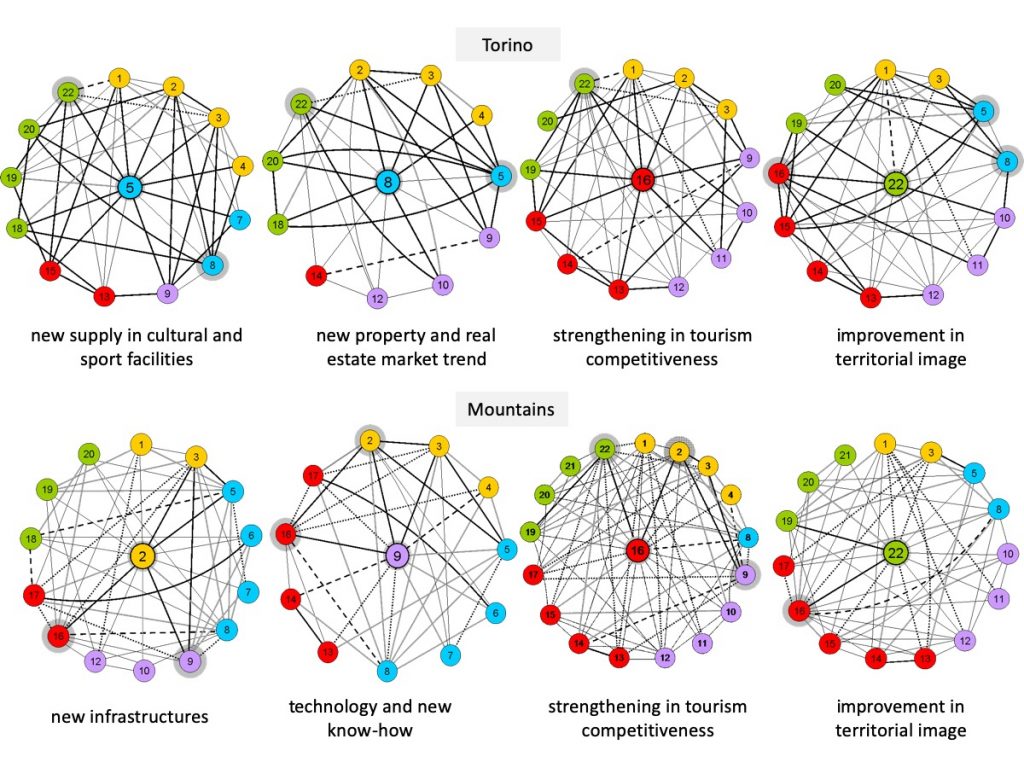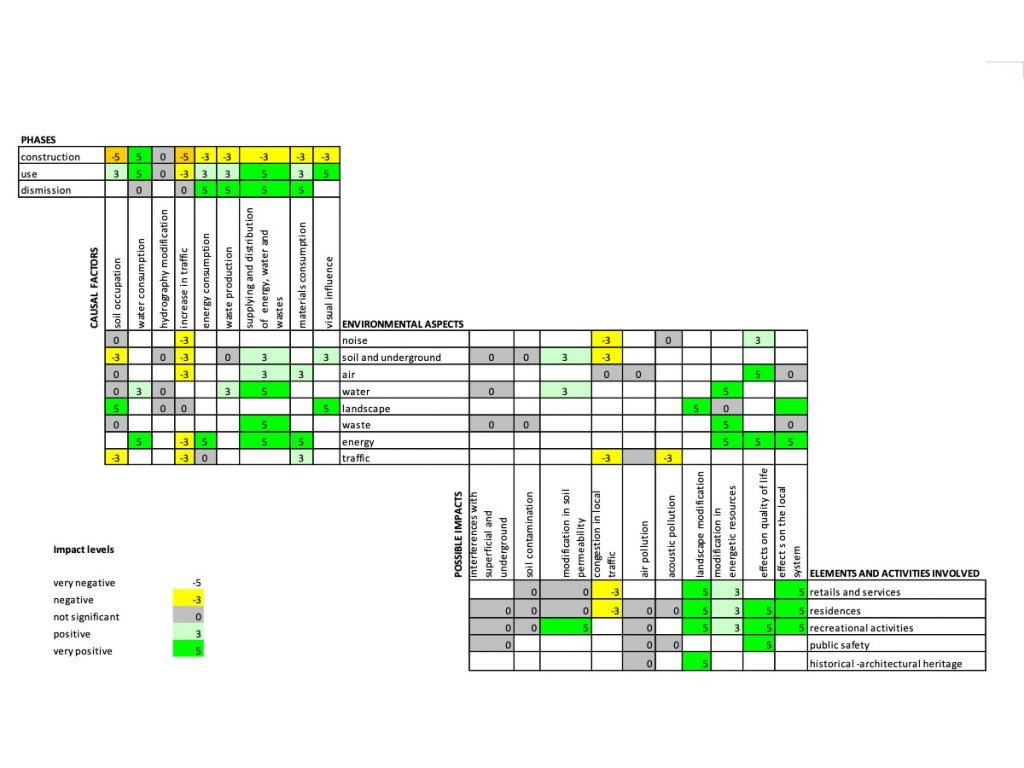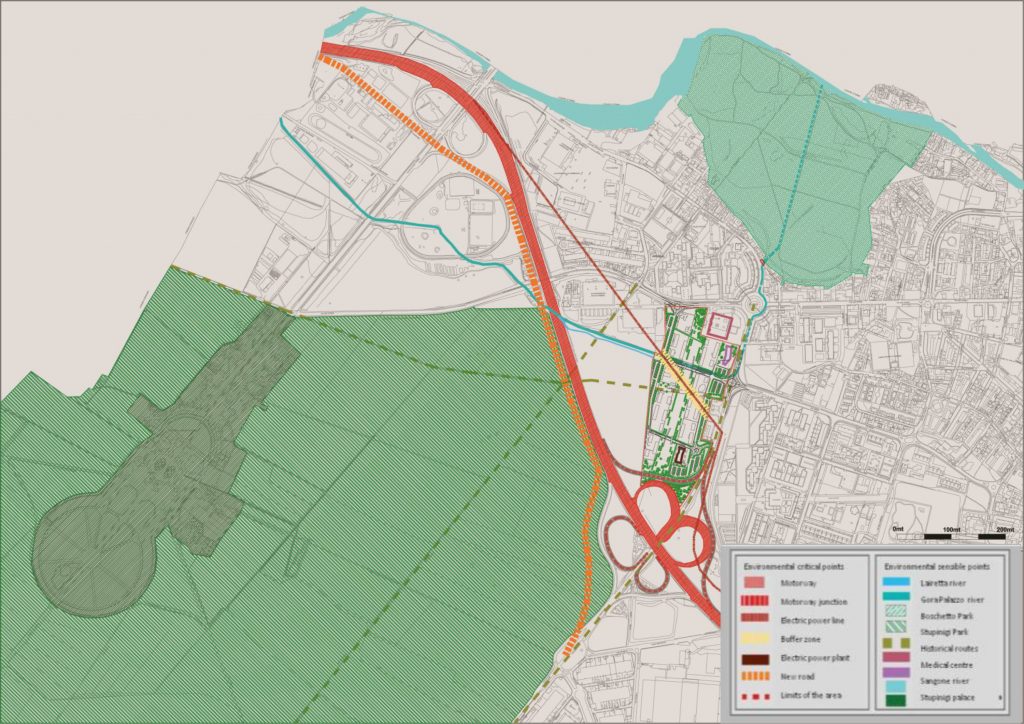Considering the scarcity of resources and the irreversibility of environmental transformations, the basic approach for evaluating territorial scenarios refers to the concept of environmental resilience. The term provides a useful perspective on sustainable development and is related to the capacity of a system to maintain its own structure and behaviour models in the face of external impacts, that is its adaptability to changes.
In the context of territorial transformation scenarios, it is necessary to detect specific evaluation procedures able to consider resilience concepts over the three pillars of sustainability (i.e. environmental, social and economic dimensions). In this context, mention can be made to the processes of Environmental Impact Assessment (EIA) and Strategic Environmental Assessment(SEA). EIA and SEA can be defined as systematic, pro-active and participative processes that are finalized at ensuring that environmental aspects are given due consideration in planning and decision-making above the project level. Moreover, theseprocedures over time have increasingly considered not only the environmental effects of projects, plans and programmes, but also social and economic effects and recently, some applications started to think about integrated sustainability.
- Development of Decision Support Systems for the preparation of policies, plans, programmes and projects in order to include sustainability values.
- Construction of check list, environmental impact matrix and impact chains that allow the environmental impacts of a project to be indentified and evaluated.
- Definition of mitigation and compensation measures able to correct negative environmental performances of project.
- Production of environmental indicators able to provide information about the characteristics of a phenomenon and definition of synthetic indices based on the aggregation of several indicators for making judgments on compatibility of courses of actions very quickly.
- Evaluation of the environmental resilience in order to measure vulnerability and robustness of territorial systems for supporting decision making processes in the context of environmental planning and management.
- Ex ante, in itinere and ex post monitoring of resilience by means of quali/quantitative methods.
- Risk analysis of urban and environmental systems for ensuring environmental security, with particular reference to critical infrastructures.



FERRETTI, V., BOTTERO, M., MONDINI, G. (2015). A Spatial Decision Support Tool to Study Risks and Opportunities of Complex Environmental Systems. .Journal of environmental accounting and management, pp 197-212, ISSN: 2325-6192.
COMINO, E., BOTTERO, M., POMARICO, S., ROSSO, M. (2014). Exploring the environmental value of ecosystem services for a river basin through a spatial multicriteria analysis. Land use policy, pp 381-395, ISSN: 0264-8377
BOTTERO, M. (2013). Sustainability assessment of large dams: the case of a hydropower plant in Bulgaria. Management of environmental quality, pp 178-198, ISSN: 1477-7835.
